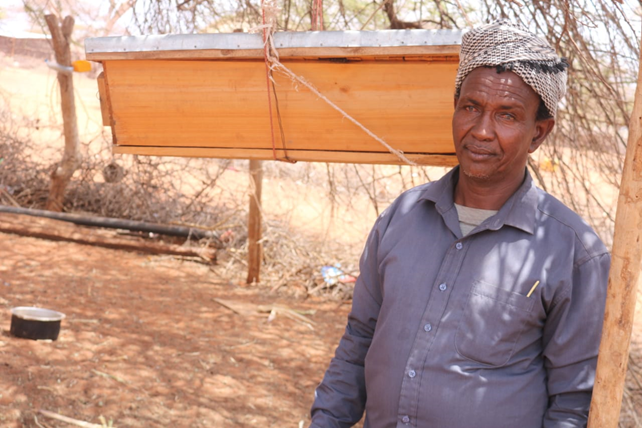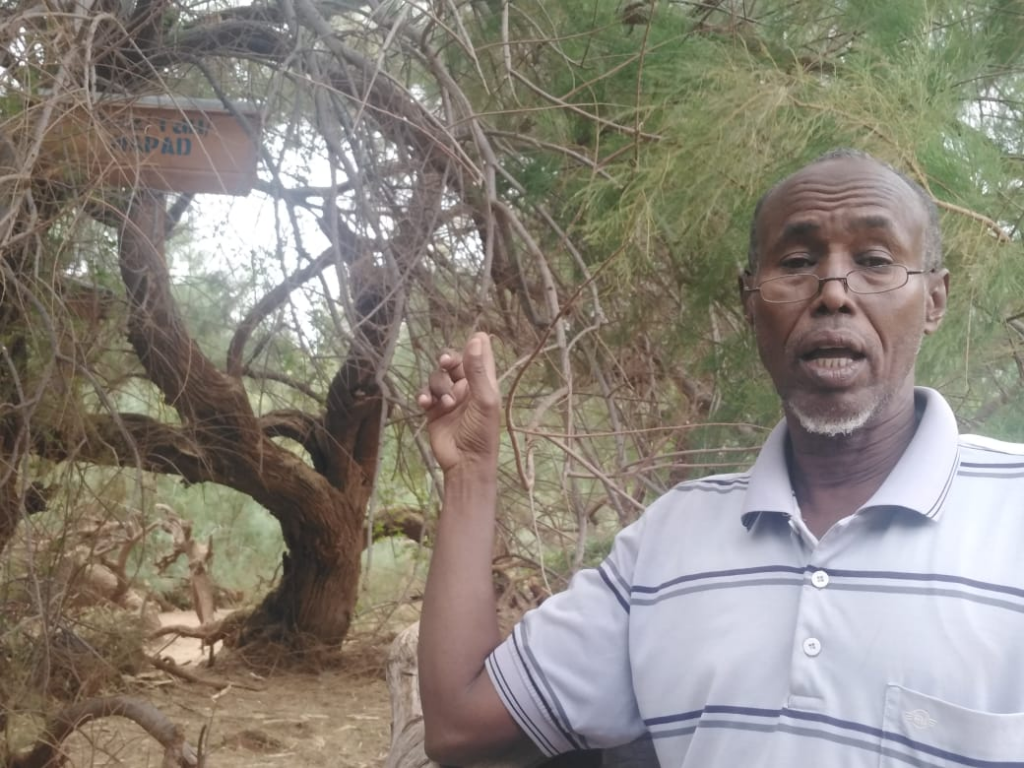In the remote, dusty village of Aresa in Mandera County-Kenya, villagers depend on small-scale agriculture to earn a living. Climate change has resulted in unpredictable weather changes, and now families struggle to meet their basic needs. The area is highly vulnerable to drought, but at the same time, erratic rainfall has increased in the area leading to frequent floods. This has resulted in the loss of crops and damage to agricultural infrastructure leading to increased household food insecurity and spiraling poverty.

40-year-old Maalim Dakane followed his father’s footsteps into agriculture.” I grow maize, simsim, and cowpeas, but this has become risky as farmers lose almost an entire harvest either to flooding or diseases and pests“. Says Maalim. “Because of erratic weather patterns and unreliable crop harvests, our income has become irregular and is declining.” He continues.
The increasing crop losses from floods, coupled with crop pests and diseases has led to post-harvest losses. These have become a severe threat to these riverine households. The communities are, therefore, exploring new ways of diversifying their incomes to reduce their vulnerability to these risks.
To promote income diversification and increase household income of the riverine communities, Nomadic Assistance for Peace and Development (NAPAD) with financial support from the Federal Ministry of Economic Cooperation and Development (BMZ) and Terre des Hommes (TDH) embarked on a project to contribute to the sustainable strengthening of livelihoods and resilience to droughts in the riverine community of Mandera County.
NAPAD trained 50 farmers from 5 farmer groups on beekeeping and management practices. The groups received 20 modern beehives and accessories among other farm inputs such as crop seeds, to boost crop and honey production hence fully benefiting from this highly lucrative industry. By diversifying their income sources, farmers are now improving their resilience to climate change.

“As the weather fluctuates between excessive rains, to months of drought, managing bees for honey will be an excellent supplement to the regular on-farm activities.” Says Elmi the Extension officer of the area.
“The additional income from beekeeping will help me survive crop losses. This project will aid our families, increase our sources of food and our incomes. The hives when colonized will without a doubt improve our lives and we look forward to our first harvest,” Maalim said while examining the wooden bee box.
